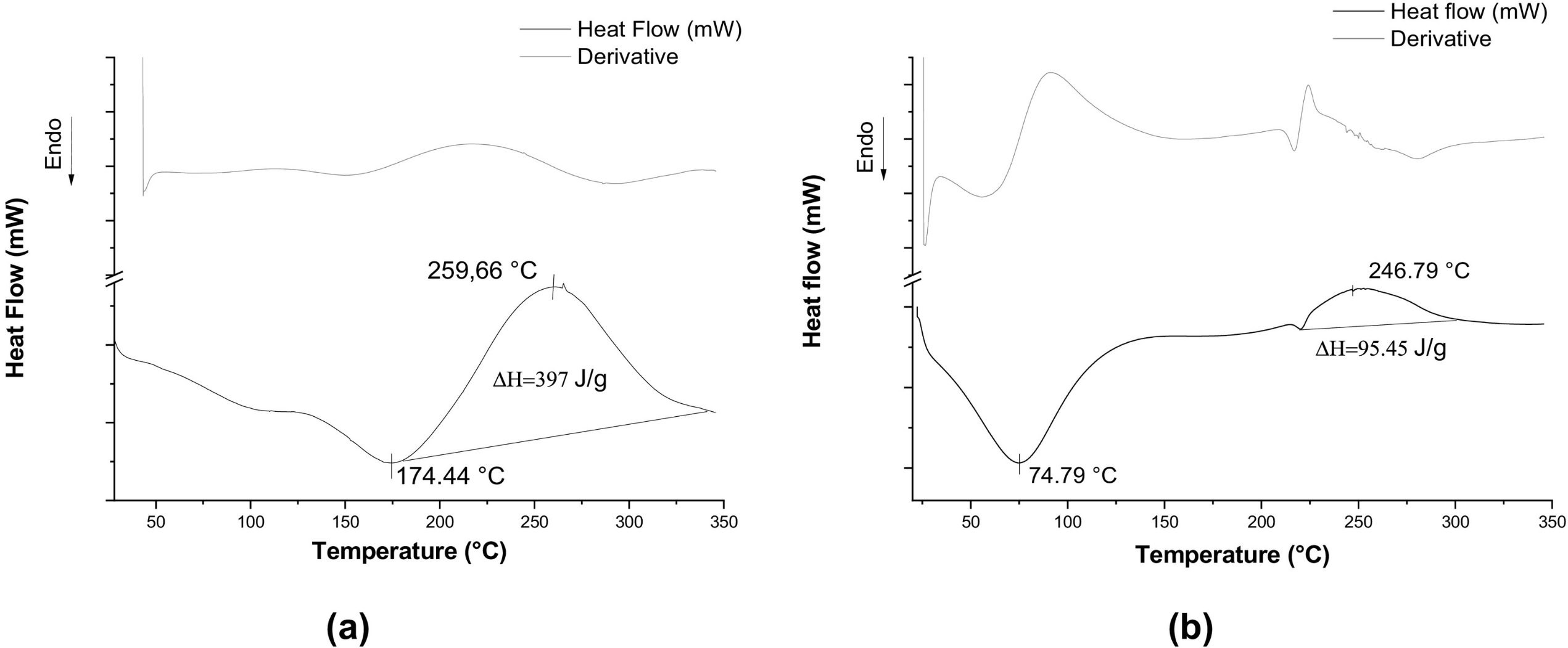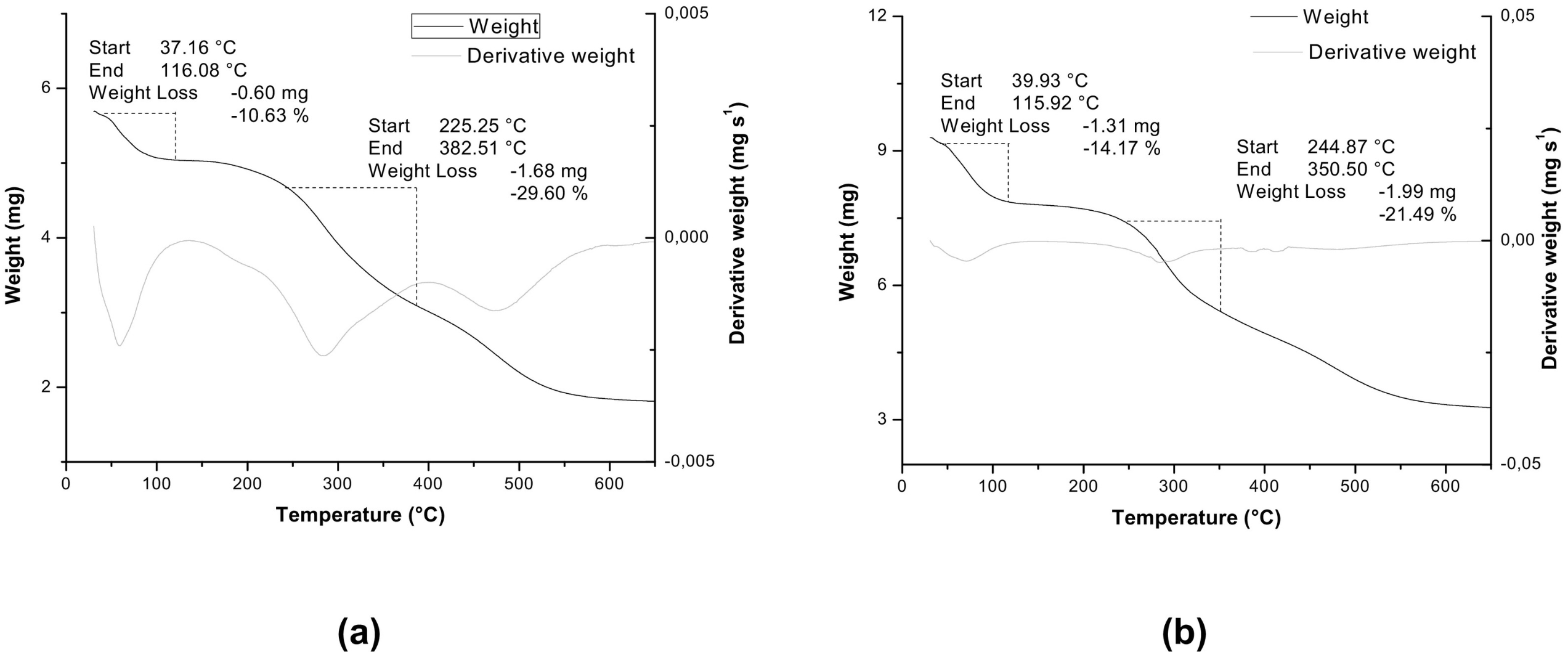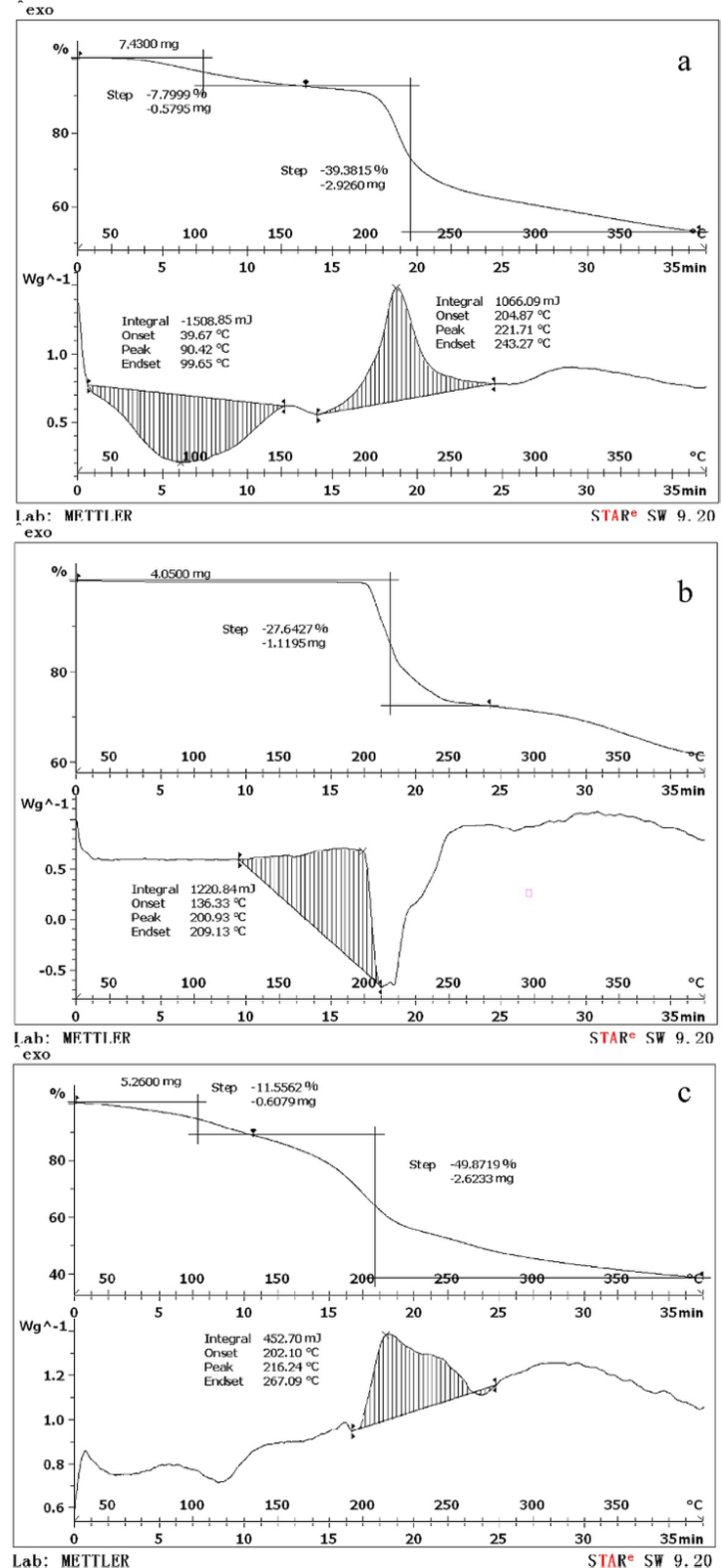DSC and TGA Analysis Service
DSC and TGA Analysis Service refers to the combined application of Differential Scanning Calorimetry (DSC) and Thermogravimetric Analysis (TGA) for analyzing the thermal properties, stability, and compositional changes of biomolecules under controlled temperature conditions. DSC and TGA analysis are widely used to analyze phase transitions, thermal degradation, and energy changes associated with molecular events. DSC measures heat flow differences during temperature changes, capturing critical transitions such as protein folding, denaturation, and aggregation. TGA, on the other hand, quantifies sample mass changes as a function of temperature, providing insights into thermal degradation, moisture loss, and volatile compound release. DSC and TGA Analysis Service delivers a comprehensive thermal profile that enables researchers to better understand the behavior and stability of proteins, peptides, and metabolites in diverse biological and pharmaceutical systems.
DSC and TGA Analysis Service provides valuable insights into protein stability, thermal unfolding, refolding kinetics, and aggregation behavior, supporting therapeutic protein development and biopharmaceutical quality control. DSC precisely maps thermal transitions such as protein folding, denaturation, and ligand binding interactions, offering detailed thermodynamic profiles. Meanwhile, TGA detects moisture content, residual solvents, and thermal degradation patterns, providing complementary quantitative data on protein samples. Together, DSC and TGA analysis enable researchers to optimize protein formulation, improve storage stability, and ensure batch-to-batch consistency, contributing to enhanced drug efficacy and safety in pharmaceutical applications.
Service at MtoZ Biolabs
MtoZ Biolabs provides a DSC and TGA Analysis Service designed for precise thermal characterization of proteins, peptides, and other biomolecules. With state-of-the-art instrumentation and a team of experienced scientists, our DSC and TGA Analysis Service offers comprehensive insights into protein stability, thermal unfolding, refolding kinetics, and aggregation behavior. The DSC and TGA Analysis Service supports critical applications such as therapeutic protein development, biopharmaceutical quality control, and optimization of protein formulations. By delivering accurate thermal profiles and reliable data interpretation, MtoZ Biolabs' DSC and TGA Analysis Service helps researchers ensure product consistency, enhance storage stability, and accelerate drug development processes. Partner with us for robust, high-quality thermal analysis solutions tailored to your scientific and industrial needs.
Service Advantages
1. Comprehensive Thermal Characterization
Our DSC and TGA Analysis Service provides precise detection of heat flow and mass loss, enabling detailed insights into biomolecule stability, thermal transitions, and decomposition patterns.
2. High Sensitivity and Resolution
With advanced instrumentation, the DSC and TGA Analysis Service ensures accurate detection of subtle thermal changes, such as exothermic and endothermic transitions, even in complex biological systems.
3. Insight into Structural Transformations
By identifying unique thermal events, such as polymorphic transitions and chemical modifications, DSC and TGA Analysis Service validates molecular interactions and structural stability.
4. Customized Solutions
Tailored experimental designs and analysis strategies ensure the service meets diverse project requirements and research objectives.
Applications
1. Biopharmaceutical Industry
DSC and TGA Analysis Service plays a crucial role in protein drug formulation optimization, therapeutic protein stability studies, antibody-drug conjugate (ADC) stability assessment, and vaccine thermal stability evaluation.
2. Protein Research
In protein science, DSC and TGA Analysis Service supports protein folding and unfolding analysis, aggregation behavior studies, enzyme stability assessment, and protein-ligand interaction characterization.
3. Food Industry
The DSC and TGA Analysis Service is widely used in food protein stability studies, thermal behavior analysis of food additives, evaluation of protein denaturation during processing, and shelf-life assessment of protein-based products.
4. Agriculture
DSC and TGA Analysis Service contributes to the thermal stability analysis of agricultural biomolecules, evaluation of crop protein quality, analysis of protein-based biopesticides, and seed protein thermal behavior studies.
Case Study
1. Thermal Characterization of Chitosan-Lysozyme Microspheres Using DSC and TGA Analysis Service
Chitosan, a biopolymer with natural antimicrobial properties, has gained significant attention in biomedical and material science fields due to its biocompatibility and versatility. In this study, DSC and TGA analysis was employed to characterize chitosan microspheres (CMS) with and without immobilized lysozyme, aiming to evaluate polymer-enzyme interactions and thermal stability. DSC analysis revealed a decrease in polymer degradation enthalpy from 397 J/g (CMS) to 95.45 J/g (C-LMS), indicating new bond formation between chitosan and lysozyme. Additionally, TGA analysis detected two primary mass loss events: water evaporation and polymer degradation, with altered thermal behavior in enzyme-immobilized microspheres. These findings demonstrate the successful immobilization of lysozyme, with enhanced structural stability and antimicrobial properties, making them suitable for functional applications.

Figure 1. Differential Scanning Calorimetry (DSC) Microspheres (a) Chitosan Microspheres (CMS) and (b) Chitosan-Lysozyme Microspheres (C-LMS)

Cerón, A. A. et al. Int J Biol Macromol. 2021.
Figure 2. Thermogravimetry – TGA Microspheres (a) Chitosan Microspheres (CMS) and (b) Chitosan-Lysozyme Microspheres (C-LMS)
2. Thermal Analysis of Chondroitin Sulphate-Modified Doxorubicin Using DSC and TGA Analysis Service
Doxorubicin (Dox) is a widely used chemotherapy drug, but its clinical application is often limited by poor tumor targeting and high cardiac toxicity. To address these challenges, chondroitin sulphate (CS)-modified Dox nanoparticles (CS-Dox) were developed to enhance drug stability and targeting efficiency. Using DSC and TGA Analysis Service, the thermal behavior of CS-Dox was analyzed, showing an increase in degradation temperature from 136.3°C (Dox) to 202.1°C (CS-Dox), indicating improved thermal stability. Additionally, unique exothermic (216.2°C) and endothermic (267.0°C) transitions were observed, confirming successful modification and structural transformation. These findings highlight the effectiveness of DSC and TGA Analysis Service in validating drug formulation stability and performance.

Liu, P. et al. Carbohydr Polym. 2019.
Figure 3. The TGA–DSC curves of CS, Dox and CS-Dox (a) CS, (b) Dox, (c) CS-Dox
FAQ
Q: How do I determine whether DSC or TGA aligns better with my experimental goals?
MtoZ Biolabs' DSC and TGA Analysis Service is tailored to address distinct experimental goals. DSC excels in measuring heat flow changes, making it ideal for analyzing protein folding, thermal denaturation, and ligand interactions. TGA, on the other hand, quantifies mass changes, offering insights into moisture content, thermal decomposition, and volatile compound release. For complex studies, combining DSC and TGA analysis provides a comprehensive thermal profile, ensuring precise data interpretation and reliable results for your research objectives.
How to order?







